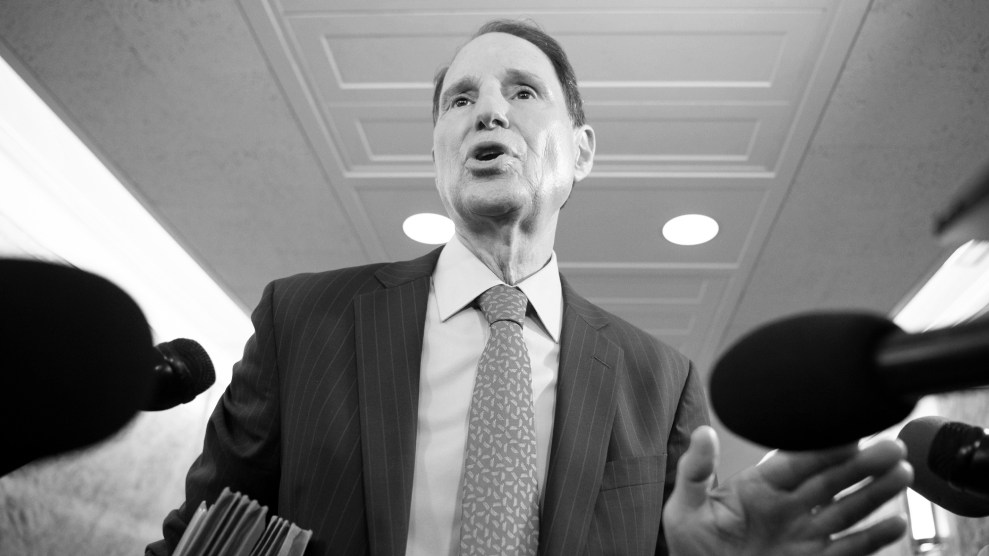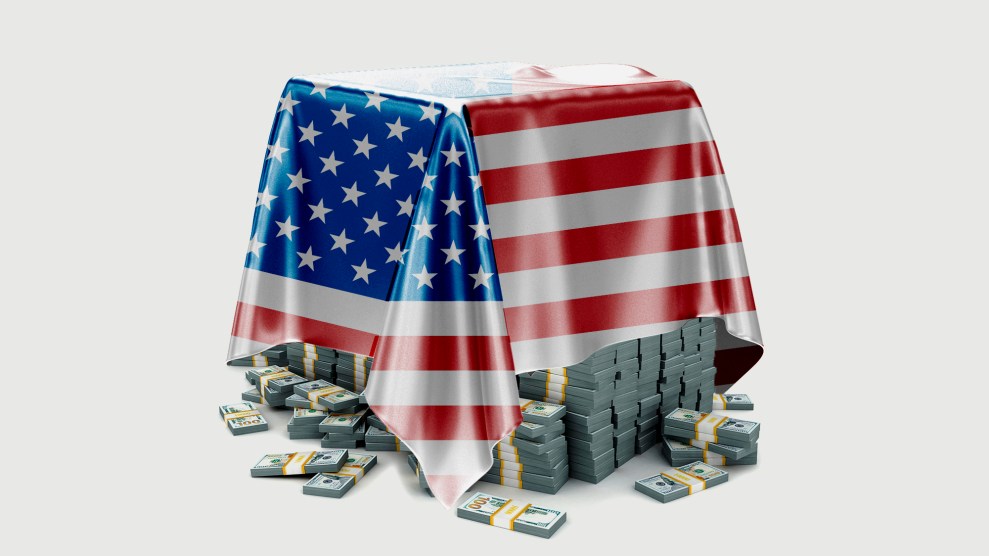
Mother Jones illustration; Patrick Pleul/Pool/AP; Getty
There’s a piece in today’s Wall Street Journal about how billionaires like Elon Musk are now whining about Delaware—which literally has more corporations than people—because it imposes too many rules. Musk is fretting because a Delaware business court ruled that his $50 billion-plus Tesla compensation package, which was approved by a loyalist board, was excessive and therefore unfair to shareholders who had sued to stop it.
As the New York Times reported, the judge deemed the approval process “deeply flawed” and voided Musk’s contract, calling it “the largest potential compensation plan in the history of public markets.”
The Times noted in a follow-up piece that Musk owns about 411 million Tesla shares, worth around $78 billion, and that he’d pledged 238 million shares for personal loans. Borrowing against their vast portfolios, as ProPublica has detailed, is how Musk, Jeff Bezos, Michael Bloomberg, Warren Buffett, and other ludicrously wealthy Americans have managed to legally avoid the lion’s share of income taxes.
Musk publicly lamented the Delaware decision that would dislodge him from the “world’s richest man” perch. He says he’ll seek to reincorporate in Texas, where Space X is headquartered, and where, as my colleague Abby Vesoulis reports, Musk has been flexing his plutocratic power at the expense of longtime residents.
Never incorporate your company in the state of Delaware
— Elon Musk (@elonmusk) January 30, 2024
The Journal points out that Musk isn’t the only major shareholder chafing at Delaware’s rules, noting that Texas is among the newbies vying to attract more corporate registrations and that another contender, Nevada, offers “broad protections for directors and officers in many cases that Delaware wouldn’t, including involving improper personal gain.”
A state going out of its way to protect corporate crooks may shock you—or should—but Musk’s hissy fit is merely the latest skirmish in the race to the bottom for state corporate oversight. Both Vesoulis and Casey Michel, author of the book American Kleptocracy, detailed in our American Oligarchy package how competition between states to attract companies—which tend to overpromise and under-deliver on jobs and economic development—has resulted in a downward spiral that gives unelected billionaires power over local affairs and has made the United States the go-to destination for illicit wealth, foreign and domestic.
Need a tax haven? A place to hide and launder stolen cash? Why bother with the Caymans or the Bahamas when you can get those services in South Dakota—and you don’t even have to relocate there. If you’re looking for other options, check out Alaska, Illinois, Florida, Ohio, Missouri, Nevada, Florida, New Hampshire, Rhode Island, Tennessee, Wyoming, and the original culprit: Delaware.
During the 1910s, Michel writes:
Not only did Delaware’s legislature up the ante on enticements—exempting corporations from taxes and reimbursing their directors for damages incurred by litigious shareholders—but its Chancery Court began producing the most pro-corporate rulings in the country. For good measure, the state also granted anonymity to anyone who wanted to register a company there.
By 1929, 42 percent of state income came from corporate registration fees and taxes. With a population of a tad more than 1 million, Delaware is now home to 1.9 million corporations, including more than 300,000 registered in 2022 alone. Each year, it rakes in some $2 billion in corporate taxes and fees, far more than any other state. The constituents of Delaware lawmakers, “in a very real sense, are companies,” as the University of Cambridge’s Jason Sharman, an expert on money laundering and corporate regulation, has noted.
Now Texas is in the running too? All I can say is, when a few overpaid moguls can move the impunity needle by griping that Delaware isn’t permissive enough, we’ve got a problem.
















